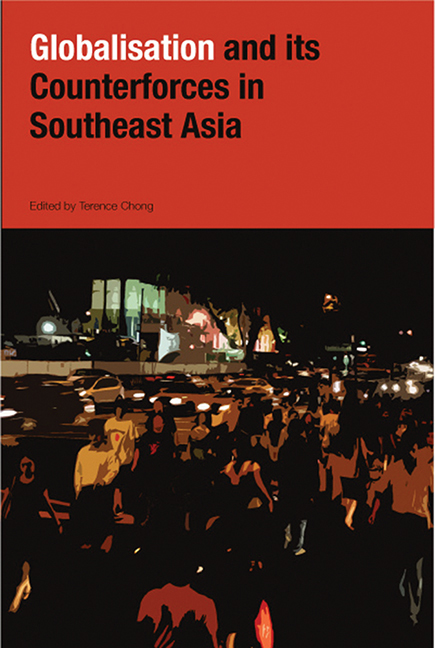Book contents
- Frontmatter
- Contents
- Foreword
- Preface
- The Contributors
- Introduction
- 1 Counter-forces: The Politics of Uneven Power
- Part I The Political Contradictions of Globalization
- Part II Economic Regionalism and Global Influences
- Part III Local Security, Global Insecurity
- Part IV Social Processes: Arrested Development
- Part V Cultural Production in the Global Matrix
- Index
1 - Counter-forces: The Politics of Uneven Power
from Introduction
Published online by Cambridge University Press: 21 October 2015
- Frontmatter
- Contents
- Foreword
- Preface
- The Contributors
- Introduction
- 1 Counter-forces: The Politics of Uneven Power
- Part I The Political Contradictions of Globalization
- Part II Economic Regionalism and Global Influences
- Part III Local Security, Global Insecurity
- Part IV Social Processes: Arrested Development
- Part V Cultural Production in the Global Matrix
- Index
Summary
INTRODUCTION: GLOBALIZATION'S DEMOCRATIZATION OF POWER
Even as the world shrinks with each technological and communicative breakthrough, we are still uncertain as to where this much-hyped phenomenon called “globalization” is going to bring us. Over the years it has forced us to re-assess big ideas like the “nation-state” and “community”, needled us into refining their characteristics, and challenged us to imagine them anew. We have accepted that age-old values like sovereignty and national identity have not been rendered irrelevant but, instead, stretched and manipulated by an increasing array of transboundary processes. And yet, while globalization has cornered us into re-thinking how we define ourselves, we are still unsure as to how the human story will unfold. This is because, far from the picture of an economic beast roaming the earth in search of self-fulfilment that many politicians, journalists, even scholars, have painted, globalization, like all social, political and cultural forces, is of man. Globalization, though driven largely by the logic of neo-capitalism, is more than just economic process. Its political, social and cultural dimensions have shown us, through numerous studies, that homogenization and universalism are but some of the possible outcomes. Resistance, hybridity and sheer indifference are legitimate possibilities of globalization, suggesting that as long as it remains impossible to predict how global processes will affect the interests of certain groups, or how they would react, it will be just as impossible to say exactly where globalization will take us.
It is with this understanding that we have moved from the imperialist school of thought towards a more open-ended mode of analysis of globalization. The belief that globalization is imperialistic and homogenizing in nature is premised on the dualistic framework that describes the global political and cultural economy as the sum total of the uneven power relations between the core and periphery, the developing and developed countries, the West and the rest.
- Type
- Chapter
- Information
- Publisher: ISEAS–Yusof Ishak InstitutePrint publication year: 2008

